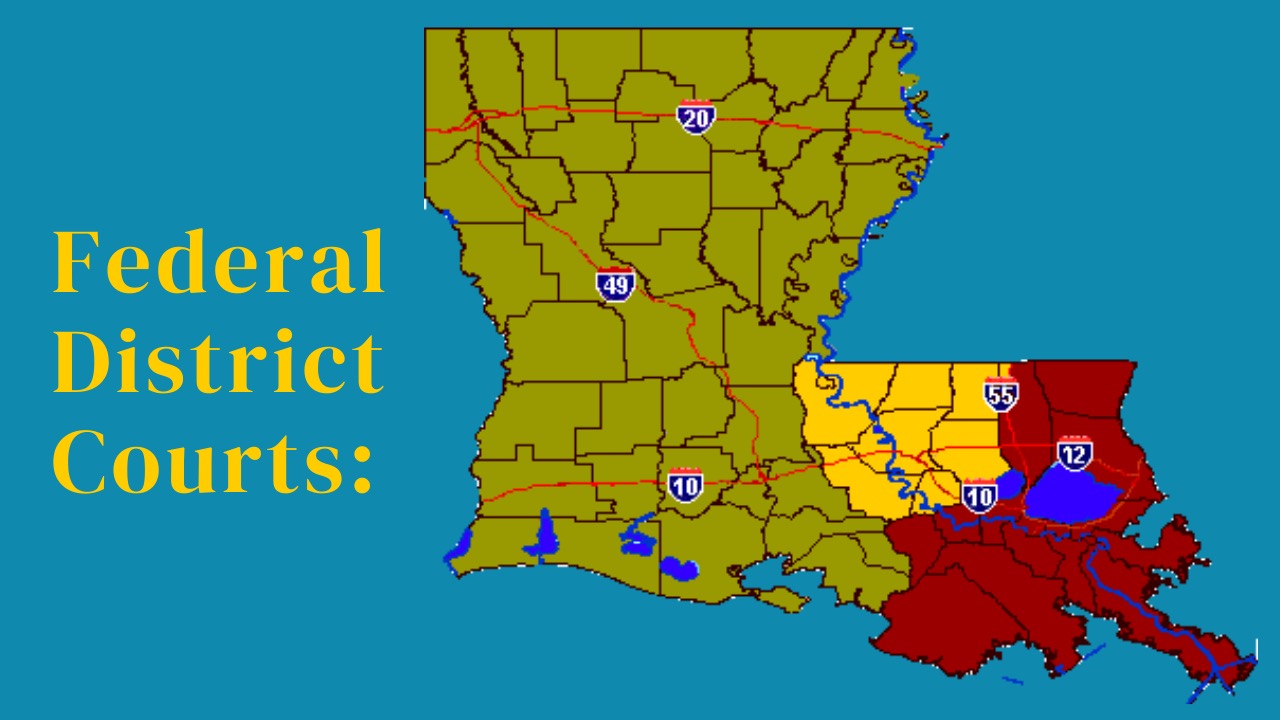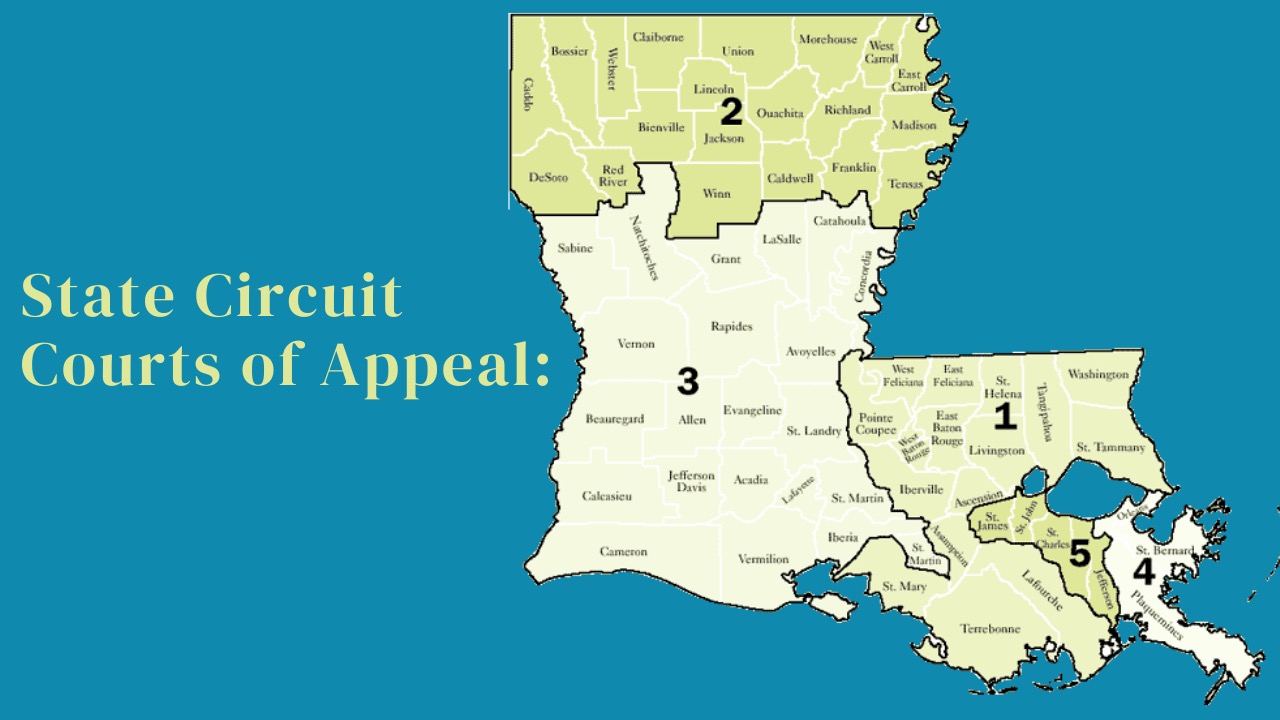By: Dan Lachman, Eli Fortunato, Maisy Boosin, Bruce Miller
The purpose of the Women’s Prison Project at Tulane University is to give guidance to incarcerated women that have committed a homicidal act out of self-defense from an abusive partner. Many of the women have experienced gender-based trauma and are part of a marginalized community. Often incarcerated women can not afford an attorney in the state of Louisiana, so they turn towards inmate counsel substitutes: other inmates with often no official education or training in preparing the new inmates’ legal claims. The lack of resources for the inmate counsel substitutes including old libraries, non-functioning computers, and a few hours of training makes the women inmates’ appeal process especially difficult. A Lifecycle of a Case goal is to explain to incarcerated women how a case proceeds with an emphasis on legal deadlines.
The United States criminal justice system is characterized by a multitude of specific procedures, laws, and regulations, all of which are far too numerous and complicated for the average person to effectively navigate. Likewise, the appeal process, which is available to those convicted is similarly difficult to manage and understand. Adding to the complexity is the fact that each state has its own set of procedures that works alongside the federal system. For these reasons, this project aims to help inmates make full and effective use of the options available to them post-sentencing.

Federal District Courts
A criminal case, from start to finish, has eleven steps beginning with the initial investigation, where evidence is gathered and suspects are identified. Next, a suspect is charged, based on the decision of a prosecutor. A warrant may be issued, and the suspect is placed in police custody. In the initial hearing, the defendant is told everything about the charges against them, their options regarding legal counsel, and bail if there is any.
During discovery, both the defense and prosecution exchange evidence, and interview witnesses and anyone relevant to the case in depositions. The goal is for both sides to have all available information that may be used in the trial. The defendant then enters the plea bargain, where they may plead guilty and accept the charges against them, sometimes in exchange for better sentencing. They can also plead not guilty and try to fight the charges.
A preliminary hearing is an optional step that can be waived by the defense, where the prosecution must prove they have enough evidence to charge the defendant. Pre-Trial motions allow both sides to motion for alterations to the trial, including but not limited to the charges, the evidence, the venue, etc. During the trial, the defense and prosecution make their case, and a ruling of guilty or not guilty is issued, often through the use of a jury.
Post-trial motions can be used to alter the initial decision as a result of alleged issues with the trial and pre-trial procedures. During sentencing, the convicted individual is given the nature and duration of their sentence, as well as any fines and restitution to be paid out. Finally, there is an option to appeal one’s sentencing, appeal cases are carried out in a separate appellate system, and not every request for appeal has to be granted. Appeal gives people an opportunity to make a case for why their sentence should be reduced or overturned.

State Circuit Courts of Appeal
In Louisiana, the appeal process begins with a direct appeal to an appellate court. Every single person who is convicted has the right to request an appeal. Winning an appeal does not automatically mean you win the case, and the process can take a long time. Those wishing to appeal must do so within thirty days of sentencing. If an appeal is denied, one has the option to have their appeal heard by the Law School Admission Council. Pleading guilty gives up one’s right to direct appeal, however, they still have post-conviction rights. Post-Conviction relief is the next option after a direct appeal and can be filed within two years of a conviction in Louisiana. It allows individuals to seek remedies if they believe their counsel was incompetent, new evidence arises, old evidence is deemed fraudulent, or laws have changed.
The next option, once all others have been attempted, is a process called Federal Habeas which must be filed within one year of conviction. Those seeking PCR must also file a request for a stay to stop the federal case from advancing ahead of the state-level motions. PCR involves a more involved re-investigation of the case than the previous options. If a request for PCR is denied, the only option left is an appeal to the Supreme Court.
In conclusion, a new inmate has a multitude of appeal opportunities and should employ all options at her disposal. Having inmate counsel can help guide and advise one throughout the process. Understanding the appeal process, memorizing important dates, and being familiar with Louisiana State Law will benefit the new inmate immensely.
For more information: Appellate Project
 NOLAbeings
Multimedia artist Claire Bangser created NOLAbeings as a portrait-based story project that marries...
NOLAbeings
Multimedia artist Claire Bangser created NOLAbeings as a portrait-based story project that marries...
 Data corner: Adobe Suite (create a PDF, social media graphic, presentation, edit a photo and video
Data corner is where you go to work with analytics and top tech skills. It takes on everything from PERL and SQL to Canva and Sprout Social.
Data corner: Adobe Suite (create a PDF, social media graphic, presentation, edit a photo and video
Data corner is where you go to work with analytics and top tech skills. It takes on everything from PERL and SQL to Canva and Sprout Social.
